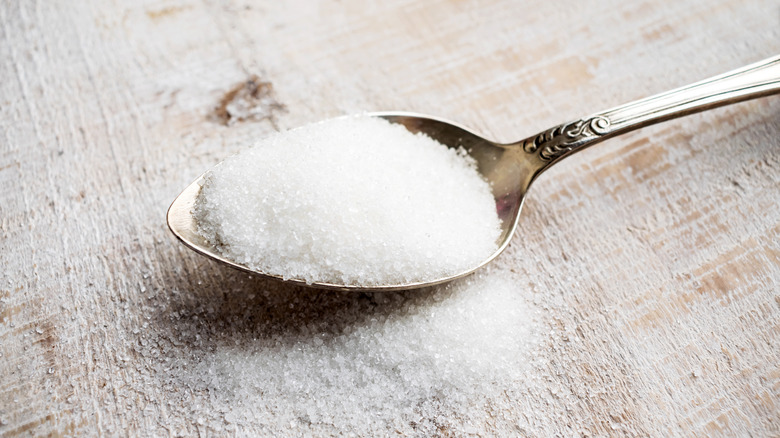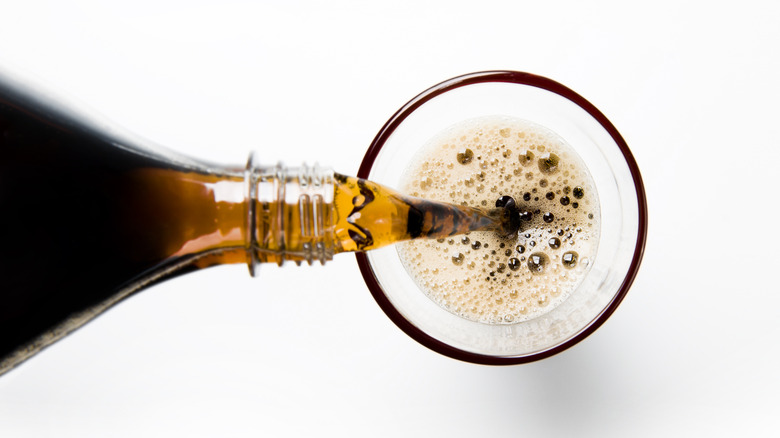When We'll Know For Sure About Aspartame's Carcinogen Status
Since its approval over four decades ago, the low-calorie sugar substitute aspartame has been mired in controversy. It can be found in common grocery items like diet sodas and chewing gum, so concerns about whether the substance has the potential to cause cancer, or not, have been the center of ongoing studies and debates. Now, the International Agency for Research on Cancer (IARC) — the cancer research arm of World Health Organization (WHO) — is set to announce its most recent findings on whether or not aspartame is a carcinogen.
On July 14, 2023, the IARC is expected to make the final decision to add aspartame to its list of substances that are "possibly carcinogenic to humans." This announcement comes on the heels of WHO's May advisory for people to avoid using non-sugar sweeteners for weight loss (except for people with diabetes), stating that there was no benefit to using them. In their list, they included acesulfame K, advantame, cyclamates, neotame, saccharin, sucralose, stevia and stevia derivatives, and aspartame.
IARC's process for making determinations about the carcinogenic status of products typically involves a review of scientific information that is already available. In this case, Reuters reports that IARC reviewed 1,300 studies before coming to its conclusion.
The controversy continues
After Reuters' report of IARC's upcoming announcement, the International Council of Beverage Associations (ICBA) immediately swung back in defense in a press release.
"While it appears IARC is now prepared to concede that aspartame presents no more of a hazard to consumers than using aloe vera, public health authorities should be deeply concerned that this leaked opinion contradicts decades of high-quality scientific evidence," ICBA stated.
IARC has four classifications for carcinogens: "carcinogenic to humans," "probably carcinogenic to humans," "possibly carcinogenic to humans," and "not classifiable as to their carcinogenicity to humans." Aloe is one of the many listed on the list of possible carcinogens, alongside others like progestogen-only contraceptives, perineal use of talc-based body powder, and chloroform.
In the same press release, ICBA, which advocates on behalf of the non-alcoholic beverage industry on a global basis, pointed to a 2022 publication from WHO which they say demonstrated that there is "no significant association" between non-sugar sweeteners and cancer.
WHO and the UN Food and Agriculture Organization (FAO) Joint Expert Committee on Food Additives (JECFA) are expected to weigh in on the upcoming review of aspartame, as well.


